Historically, it has been observed that most of the Chemistry section questions are either based on the theory and exercises of the NCERT Chemistry textbooks or from the previous year question papers of NEET.
If you’re a medical aspirant giving the NEET exam and are looking to maximize your Chemistry score, I’ve put down some tips which will not just help you prepare better but also help you crack the NEET exam with an improved score in Chemistry.
1) Understanding the Pattern
NEET Chemistry has two sections to it – Section A and Section B. Section A has 35 MCQ questions, in which there is no choice provided. Section B has 15 MCQ questions, out of which 10 questions can be attempted. Hence, a total of 45 questions can be attempted for a total of 180 marks. Most of the questions are theory-based and of easy to moderate difficulty level. A score of 120 on 180 is not too difficult to achieve.
2) Study Materials and Resources
Historically, it has been observed that most of the Chemistry section questions are either based on the theory and exercises of the NCERT Chemistry textbooks or from the previous year question papers of NEET. Only around 5 questions are based on higher level content which may not be found in NCERT textbooks. Thus, the primary resources to thoroughly study are the NCERT Chemistry textbooks. Apart from this, there are many other books that can be used for MCQ practice.
3) Most Important Topics
Like in Physics, 11th grade topics have an overall weightage of around 40-45 percent and 12th grade topics have an overall weightage of around 55-60 percent in the NEET Chemistry paper. Chemistry is divided into 3 parts- Physical Chemistry, Inorganic Chemistry and Organic Chemistry.
The most important topics in Physical Chemistry for NEET include Atomic Structure, Surface Chemistry, Stoichiometry, Solid State, Thermodynamics and Electrochemistry. Numerical problems are generally few in number, and the emphasis is majorly on theory-based questions. One can expect no more than 10 numerical problems overall in the whole chemistry section.The most important topics in Inorganic Chemistry include Periodic Classification, Chemical Bonding, s-block, p-block, d-block, f-block, Redox Reactions, Metallurgy and Co-ordination Complexes. In general, it is important to focus on Inorganic Chemistry because it is the most fact-based portion of the chemistry section, which makes it the easiest to score in.
The most important conceptual topics in Organic Chemistry for NEET include General Organic Chemistry (GOC) and Isomerism, Hydrocarbons (including Aromatic Hydrocarbons), Halogen Derivatives, Alcohols, Aldehydes and Ketones and Nitrogen Containing Compounds. These topics are an absolute must-do. Students must specifically focus on named reactions and chemical tests within these chapters, as many questions are directly asked based on such reactions. Additionally, questions from theory topics such as Polymers and Chemistry in Everyday life are quite commonly asked and are easy to score off.
4) Study Tips
Studying for NEET Chemistry essentially involves focusing on learning theory. A trick that usually works well for many students is to use highlighters or post-it notes in the NCERT textbooks wherever you come across points, formulae or equations that are important. Creating your own formula book and/or personalised notes while studying can be immensely beneficial, especially for quick and efficient revision just before the exam.
I recommend making mind-maps for Organic Chemistry, which can help in remembering named reactions and tests. For Physical Chemistry, the trick is to practise numerical questions with a timer. It can be very easy to lose track of time otherwise, which may become a counter-productive habit. Inorganic Chemistry is very theory-heavy, and I recommend reading a little bit of it everyday just to keep it revised. Otherwise, one tends to forget these facts. Focusing on Chemical Bonding and Periodic Properties is critical for Inorganic Chemistry.
Finally, make sure you take plenty of Mock Tests. More importantly, do revisit the old tests you give to keep track of the important questions that you may have gotten wrong earlier, so that you can benchmark your progress. NEET is all about speed, accuracy and time management. The more you practice, the better you will get. For more personalized advice, mentoring or training, you can reach out to me via email at institute@tejtutorials.com
The author of the article is Tejas Shyam, edu-preneur and founder of The Education Journey.
(Disclaimer: The views expressed above are the author's own and do not reflect those of DNA.)
![submenu-img]() T20 World Cup 2024: ICC reprimands Afghanistan captain Rashid Khan ahead of semi-final vs South Africa
T20 World Cup 2024: ICC reprimands Afghanistan captain Rashid Khan ahead of semi-final vs South Africa![submenu-img]() Veteran BJP leader LK Advani admitted to AIIMS Delhi
Veteran BJP leader LK Advani admitted to AIIMS Delhi![submenu-img]() DNA TV Show: Did Delhi CM Arvind Kejriwal put blame on Manish Sisodia in liquor policy case?
DNA TV Show: Did Delhi CM Arvind Kejriwal put blame on Manish Sisodia in liquor policy case?![submenu-img]() Watch: Shatrughan Sinha shares inside photos, videos from Sonakshi Sinha, Zaheer Iqbal's 'wedding of the century'
Watch: Shatrughan Sinha shares inside photos, videos from Sonakshi Sinha, Zaheer Iqbal's 'wedding of the century'![submenu-img]() Kalki 2898 AD director Nag Ashwin reveals these two south stars will also appear in film, Prabhas reacts: Watch
Kalki 2898 AD director Nag Ashwin reveals these two south stars will also appear in film, Prabhas reacts: Watch![submenu-img]() Meet woman who topped class 10, 12, CLAT, law school, cracked UPSC in 1st attempt without coaching to become IAS with...
Meet woman who topped class 10, 12, CLAT, law school, cracked UPSC in 1st attempt without coaching to become IAS with...![submenu-img]() Meet IIT-JEE topper with AIR 7, daughter of Maths teacher, scored 332 marks in JEE Advanced 2024, planning to...
Meet IIT-JEE topper with AIR 7, daughter of Maths teacher, scored 332 marks in JEE Advanced 2024, planning to...![submenu-img]() UPSC topper IAS Tina Dabi's Class 12 marks goes viral on social media, check her scores in different subjects
UPSC topper IAS Tina Dabi's Class 12 marks goes viral on social media, check her scores in different subjects![submenu-img]() Meet woman who is not from IIT, IIM, VIT, NIT, got job with record-breaking package of...
Meet woman who is not from IIT, IIM, VIT, NIT, got job with record-breaking package of...![submenu-img]() Meet Indian genius who saved lakhs of lives with his discovery, received six Nobel nominations, but never won due to…
Meet Indian genius who saved lakhs of lives with his discovery, received six Nobel nominations, but never won due to…![submenu-img]() DNA Verified: Did Kangana Ranaut party with gangster Abu Salem? Actress reveals who's with her in viral photo
DNA Verified: Did Kangana Ranaut party with gangster Abu Salem? Actress reveals who's with her in viral photo![submenu-img]() DNA Verified: New Delhi Railway Station to be closed for 4 years? Know the truth here
DNA Verified: New Delhi Railway Station to be closed for 4 years? Know the truth here![submenu-img]() DNA Verified: Did RSS chief Mohan Bhagwat praise Congress during Lok Sabha Elections 2024? Know the truth here
DNA Verified: Did RSS chief Mohan Bhagwat praise Congress during Lok Sabha Elections 2024? Know the truth here![submenu-img]() DNA Verified: Is CAA an anti-Muslim law? Centre terms news report as 'misleading'
DNA Verified: Is CAA an anti-Muslim law? Centre terms news report as 'misleading'![submenu-img]() DNA Verified: Lok Sabha Elections 2024 to be held on April 19? Know truth behind viral message
DNA Verified: Lok Sabha Elections 2024 to be held on April 19? Know truth behind viral message![submenu-img]() Alia Bhatt mesmerises in gown, Ranbir Kapoor looks classy in tuxedo in latest romantic photos, fans say 'couple goals'
Alia Bhatt mesmerises in gown, Ranbir Kapoor looks classy in tuxedo in latest romantic photos, fans say 'couple goals'![submenu-img]() Newlyweds Sonakshi Sinha-Zaheer Iqbal pose candidly with paps; Anil Kapoor, Kajol, Huma Qureshi attend wedding reception
Newlyweds Sonakshi Sinha-Zaheer Iqbal pose candidly with paps; Anil Kapoor, Kajol, Huma Qureshi attend wedding reception![submenu-img]() Meet Lovekesh Kataria: Elvish Yadav's close friend, Bigg Boss OTT 3 contestant who lied to father, spent his fees on...
Meet Lovekesh Kataria: Elvish Yadav's close friend, Bigg Boss OTT 3 contestant who lied to father, spent his fees on...![submenu-img]() From Highway to Chandu Champion: 5 underrated gems from Sajid Nadiadwala
From Highway to Chandu Champion: 5 underrated gems from Sajid Nadiadwala![submenu-img]() In pics: Bigg Boss OTT 3 house with dragons, two-sided walls is all about fantasy coming alive
In pics: Bigg Boss OTT 3 house with dragons, two-sided walls is all about fantasy coming alive![submenu-img]() Lok Sabha Speaker's Election: What does the Constitution say?
Lok Sabha Speaker's Election: What does the Constitution say?![submenu-img]() Explained: Why is Kerala demanding to change its name to Keralam?
Explained: Why is Kerala demanding to change its name to Keralam?![submenu-img]() DNA Explainer: What is Kafala system that is prevalent in gulf countries? Why is it considered extremely brutal?
DNA Explainer: What is Kafala system that is prevalent in gulf countries? Why is it considered extremely brutal? ![submenu-img]() Lok Sabha Elections 2024: What are exit polls? When and how are they conducted?
Lok Sabha Elections 2024: What are exit polls? When and how are they conducted?![submenu-img]() DNA Explainer: Why was Iranian president Ebrahim Raisi seen as possible successor to Ayatollah Khamenei?
DNA Explainer: Why was Iranian president Ebrahim Raisi seen as possible successor to Ayatollah Khamenei?![submenu-img]() Watch: Shatrughan Sinha shares inside photos, videos from Sonakshi Sinha, Zaheer Iqbal's 'wedding of the century'
Watch: Shatrughan Sinha shares inside photos, videos from Sonakshi Sinha, Zaheer Iqbal's 'wedding of the century'![submenu-img]() Kalki 2898 AD director Nag Ashwin reveals these two south stars will also appear in film, Prabhas reacts: Watch
Kalki 2898 AD director Nag Ashwin reveals these two south stars will also appear in film, Prabhas reacts: Watch![submenu-img]() Kaun Banega Crorepati 16: Amitabh Bachchan introduces thought-provoking campaign, fans say 'eagerly waiting for show'
Kaun Banega Crorepati 16: Amitabh Bachchan introduces thought-provoking campaign, fans say 'eagerly waiting for show'![submenu-img]() Why Kalki 2898 AD makers chose June 27 release date? Know how it is connected to Mahabharata, Lord Vishnu
Why Kalki 2898 AD makers chose June 27 release date? Know how it is connected to Mahabharata, Lord Vishnu![submenu-img]() Ahead of Kalki 2898 AD's release, makers have this request from fans: 'Let's please respect...'
Ahead of Kalki 2898 AD's release, makers have this request from fans: 'Let's please respect...'![submenu-img]() Mukesh Ambani's son Anant Ambani and Radhika Merchant's wedding invite goes viral, watch video here
Mukesh Ambani's son Anant Ambani and Radhika Merchant's wedding invite goes viral, watch video here![submenu-img]() '4 bhk for 15 crore,': Netizens in shock after Noida man's video for house hunt goes viral
'4 bhk for 15 crore,': Netizens in shock after Noida man's video for house hunt goes viral![submenu-img]() Isha Ambani's latest picture with twins is going viral on social media due to...
Isha Ambani's latest picture with twins is going viral on social media due to...![submenu-img]() Gulbadin Naib under scrutiny, may face heavy fine after dramatic Afghanistan win
Gulbadin Naib under scrutiny, may face heavy fine after dramatic Afghanistan win![submenu-img]() Makeover of homeless woman leaves internet stunned, netizens says...
Makeover of homeless woman leaves internet stunned, netizens says...

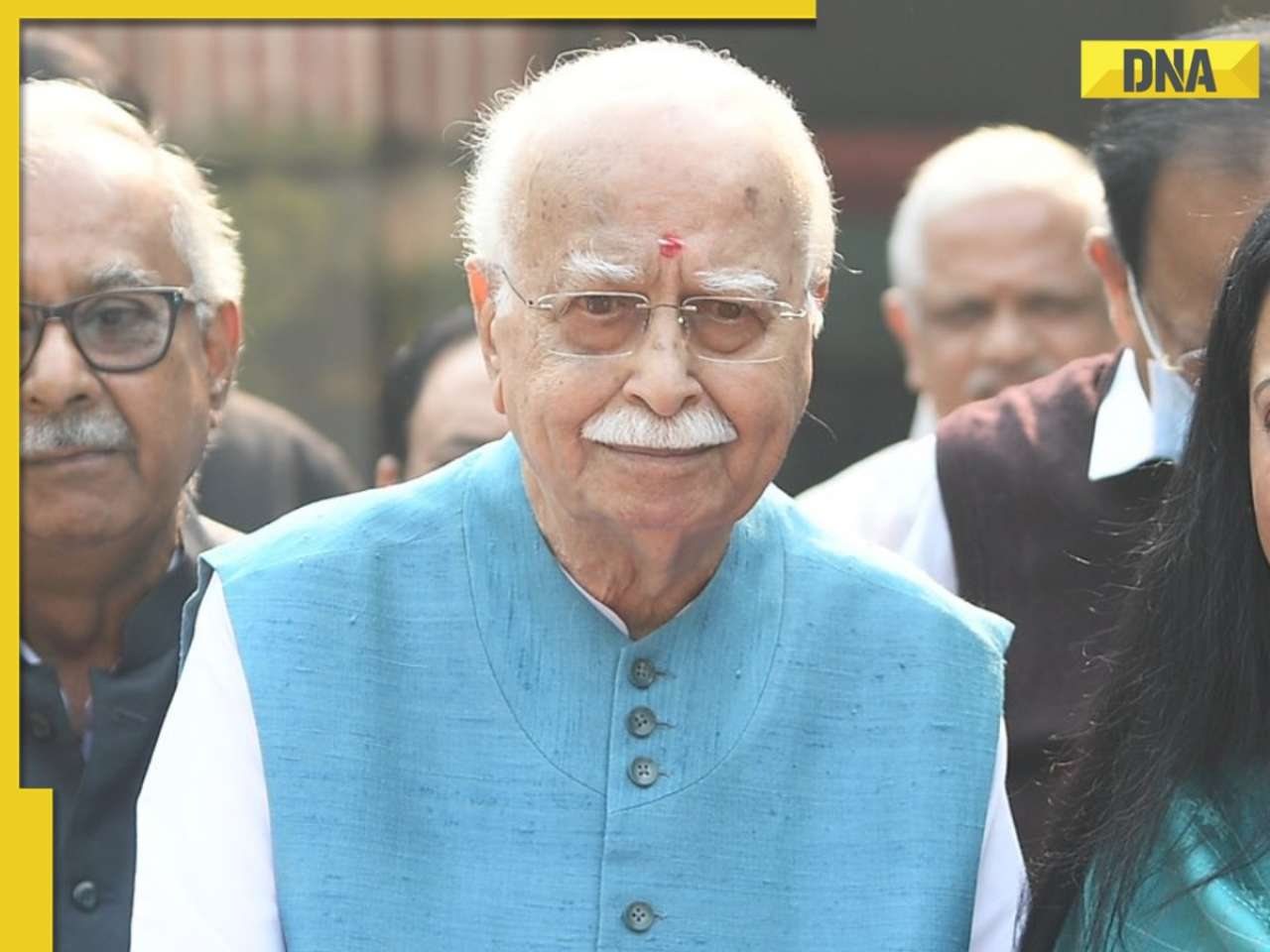





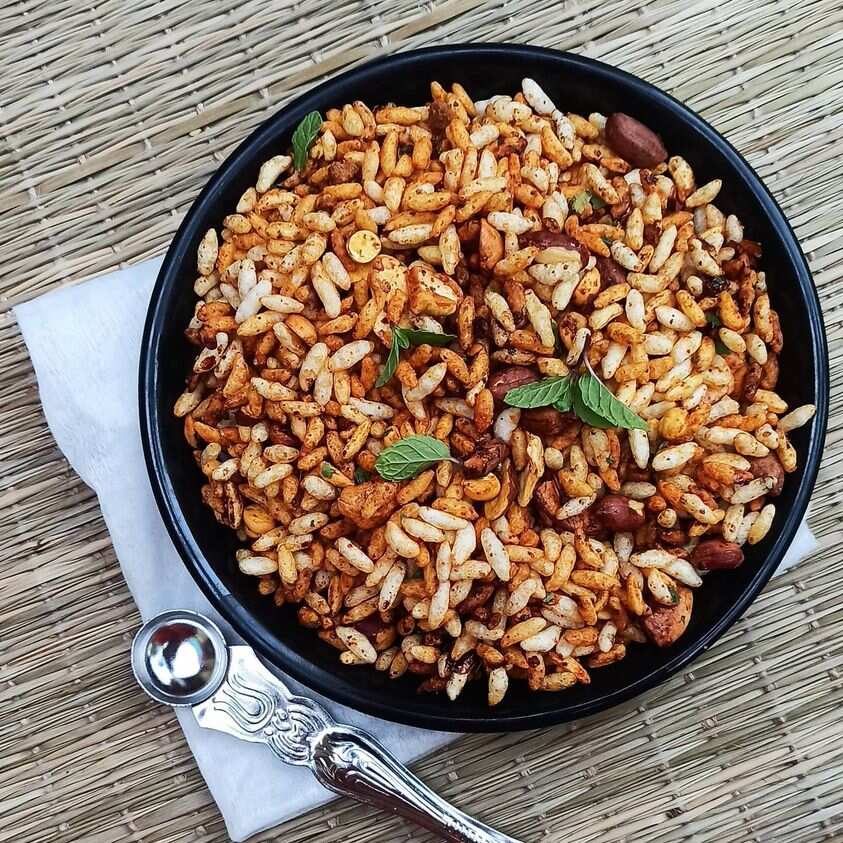





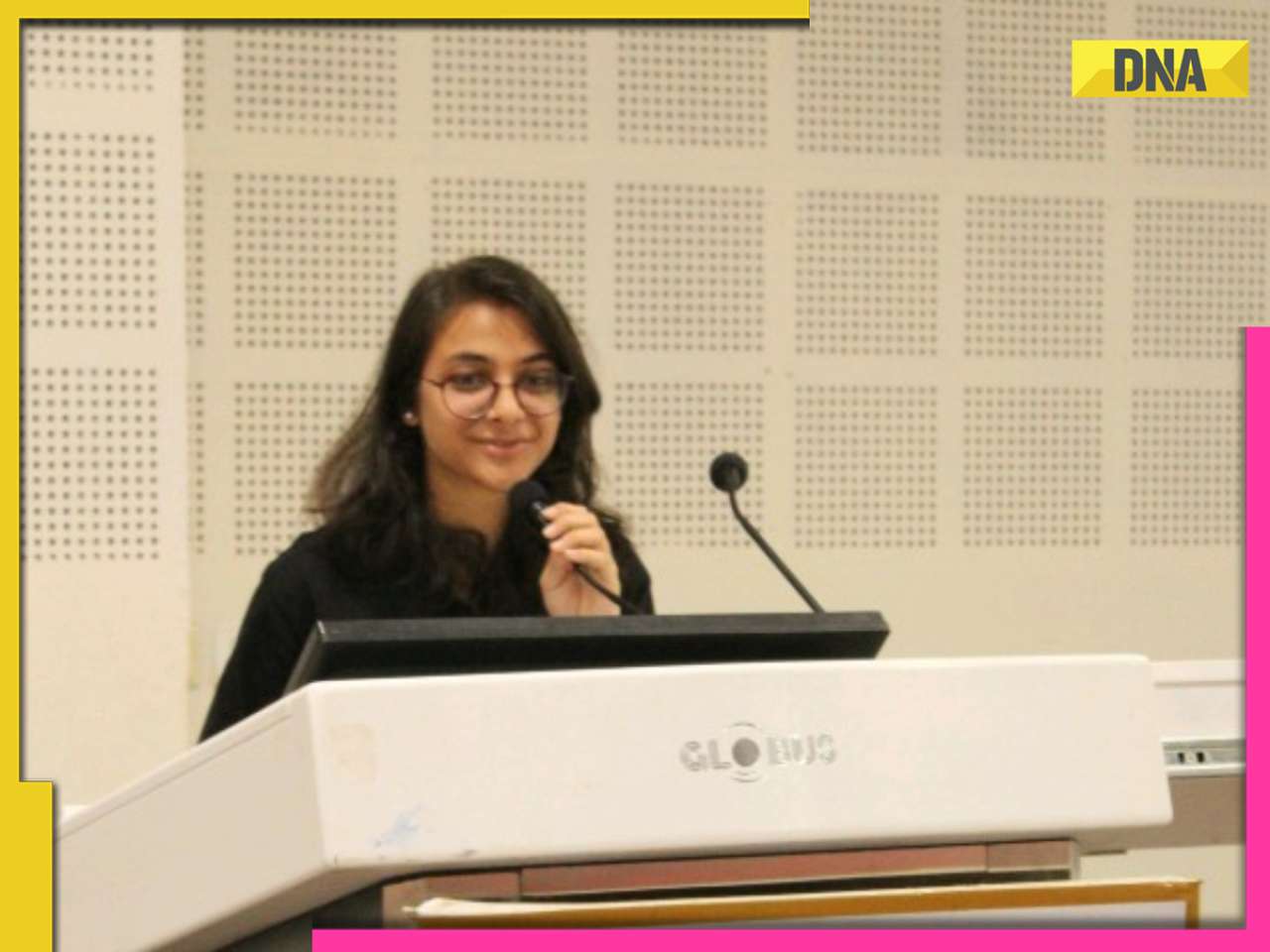
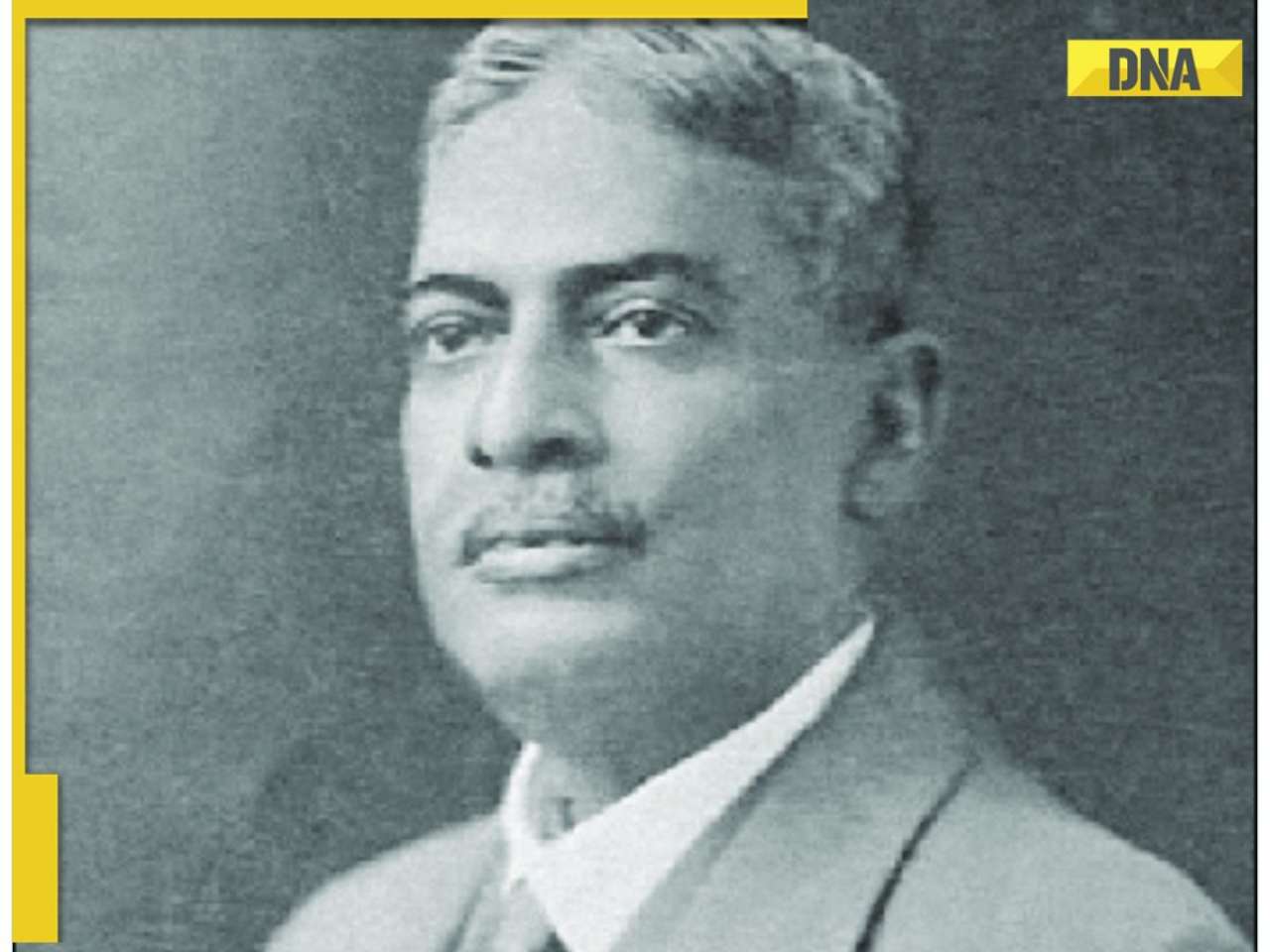
























)

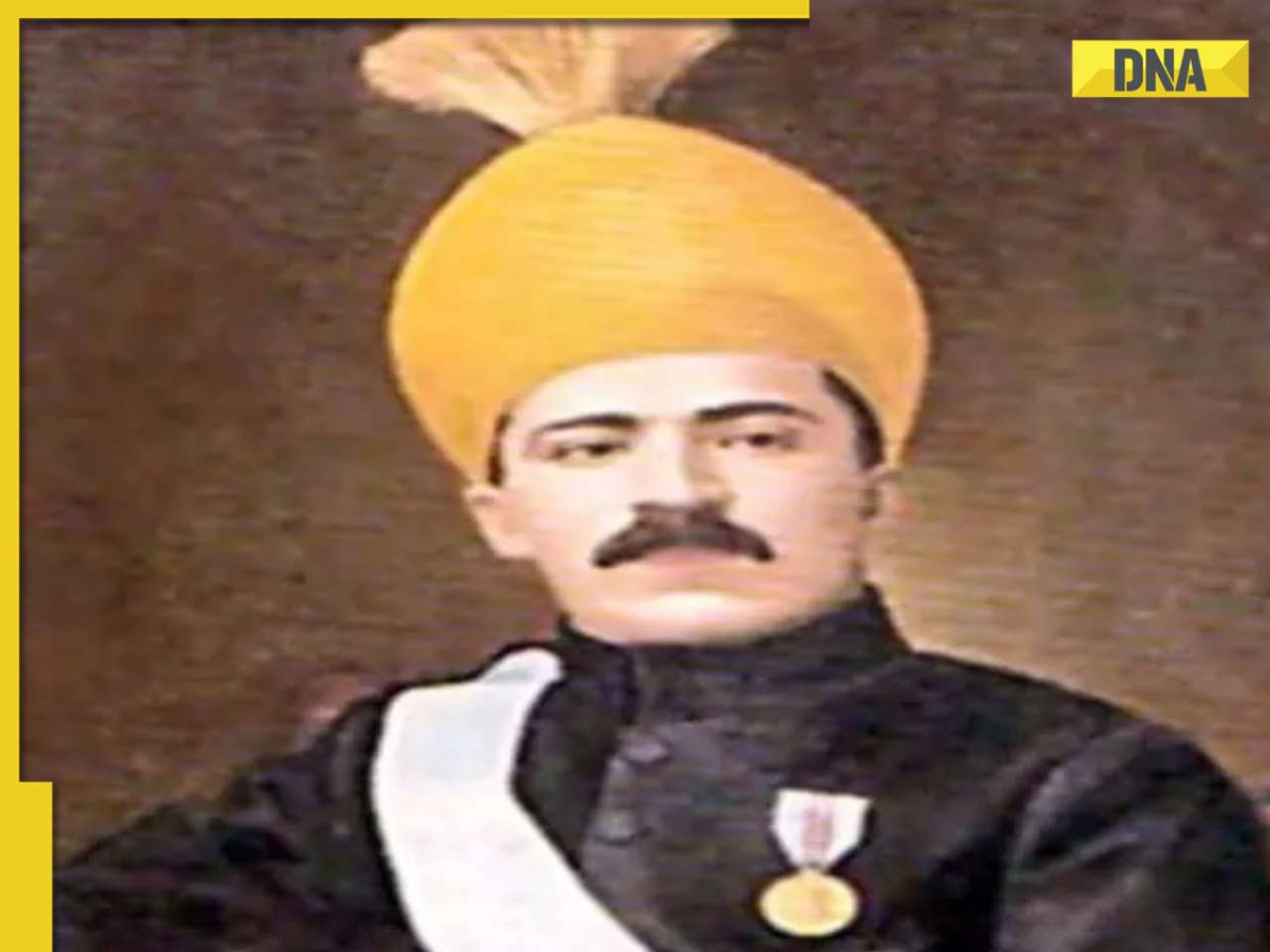
















)
)
)
)
)
)